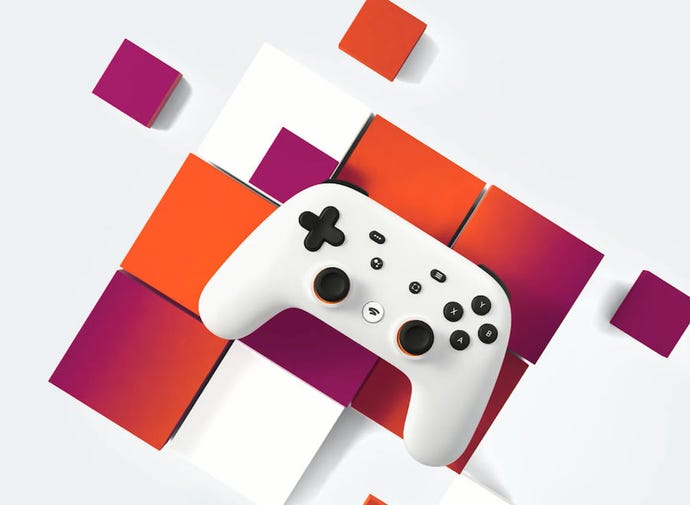Google Stadia is the future of gaming, whether you like it or not
You might think my head is in the clouds, but Google Stadia is the future of video games.
There’s nothing quite like getting a new console - an actual console - and slotting it under your television. I can’t wait to see the final designs for the next PlayStation and Xbox, and I’m certainly going to get them both. The thing is, there are a lot of people who actually hate consoles - and especially wires - taking up the centrepiece of a living room. My partner is one of them.
Industry analysts have been doomsaying about consoles since the dawn of time, but I really do think, in ten years or so, streaming will be the norm, just as it is for television. As internet infrastructure improves and the tech driving streaming services gets better alongside it, more and more people will opt for convenience and tidiness.
When was the last time you bought a physical game disc? Sales of physical games are dwindling, yet digital is on the rise. The reason? People simply want to play their games more quickly. Yes, you might have to go through a lengthy download process, but most discs come with a hefty day one patch these days anyway. If you buy digital, you can often pre-load and play as soon as a game launches, without even leaving your house.
With Stadia, you can buy a game and play it immediately, no downloads. Loading times are short, there’s no noticeable input lag, and the image quality makes it feel like some kind of witchcraft.
There’s also one area where it has a huge advantage over a traditional console: storage. Since there are no downloads, you can have as many games as you want on your account. There’s no need to delete anything to make room. Want to take a screenshot? Tap the screenshot button on the controller and it’s sent immediately to the app on your phone. Like I said, it’s about convenience.
Convenience is the reason mobile gaming is worth almost 50% of the global games market - people want fast, accessible experiences with as little fuss as possible. Yes, hardcore fans will always exist, those who prefer traditional console or PC gaming, but it feels like Stadia and services like it are well placed to bridge the gap when the time comes.
Stadia’s issues at the moment are thus: it’s not viable for a good portion of the world where the internet infrastructure can’t handle it, it’s lacking killer exclusives, and the games are too expensive. The first of those issues will be solved by time and money - perhaps Google could even help there. Exclusives are another time issue, but Google has studios tinkering away behind the scenes already, backed by some of the game industry’s best talent. As for prices, I can see these being looked at as well.
The important thing is that Google is learning on the job while carving out its space in the industry. This soft launch, assuming it sticks with it, is just laying the groundwork for that future, establishing it as the go-to platform while waiting for the world to catch up. You can tell it’s a viable strategy, since it made both Microsoft and Sony reevaluate their plans in the streaming space, with Microsoft launching its impressive xCloud service alongside it, and Sony putting more weight behind PlayStation Now. While the fear has waned since the tepid launch, Sony and Microsoft were terrified of Stadia when it was announced.
Right now, Stadia needs a lot of work. It needs to take another look at its pricing structure, and those killer exclusives can’t come soon enough. Until then, it’s just impressive tech where you can play the games you’ve already played, except you don’t really own them and they cost at least twice as much as anywhere else. Google hasn’t exactly put its best foot forward, but that foot is in the door and the door is a portal to the future of video games.




